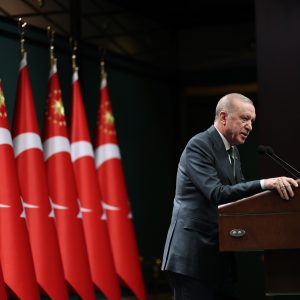Rejecting Death Penalty, Jury Recommends Life Without Parole for Parkland Mass Shooter
A Florida jury recommended Thursday that Nikolas Cruz—who murdered 17 students and staff during a 2018 massacre at Marjory Stoneman Douglas High School—be spared execution and instead imprisoned for life without the possibility of parole.
Cruz pleaded guilty last October to 17 counts of murder and 17 counts of attempted murder for the February 14, 2018 mass shooting in Parkland, Florida, in which 14 students and three staff members were killed and 17 others were injured.
According to the Associated Press, the jury could not unanimously agree that Cruz should be executed, as is required for a death sentence in the state. Sentencing is set to take place on November 1 to allow time for surviving victims to give impact statements and weigh in on their preferences.
While numerous relatives of Parkland victims expressed their desire to see Cruz executed, survivors and relatives of those slain called for his life to be spared.
“The death penalty is barbaric and implementing state violence will not bring any of the victims back,” Parkland survivor Cameron Kasky, who was a junior at Marjory Stoneman Douglas at the time of the shooting, said in a statement earlier this year.
“Just because this guy is clearly deserving of [execution] doesn’t mean the many innocent individuals on death row are guilty,” Kasky continued. “Killing one innocent person is too many, so the death penalty must be abolished in all cases.”
“The media will play to your emotional desire for justice to try and create a false narrative that the MSD shooter is responsible for the shooting,” he added, “but make no mistake: it’s the politicians who support the gun lobby that should be held accountable for this.”
Robert Schentrup, the brother of 16-year-old Parkland victim Carmen Schentrup, told CNN earlier this week that “logically, it doesn’t follow for me that we say, ‘murdering someone is this horrible, heinous, awful, terrible thing, and in order to prove that point, we’re going to do it to someone else.'”
“And I understood that if this is something that I felt that I believe that it needed to apply in my personal case and beyond, I had to look deep into my values and say, is this something that connects with it?” he added.
Schentrup explained that his opposition to the death penalty is moral and not emotional in nature, pointing to racial disparities in capital punishment, as well as the likely execution of innocent people and the killing of people with intellectual disabilities.
However, Max Schachter, the father of 14-year-old Parkland victim Alex Schachter, has argued that Cruz is undeniably guilty of the murders, that there was no racial or economic bias in the case, and that the perpetrator is not intellectually disabled—and therefore he should be executed.
“You can be against the death penalty and still support it for the trial of the worst high school murderer,” Schachter tweeted on Tuesday.
Originally published at Commondreams.org.












